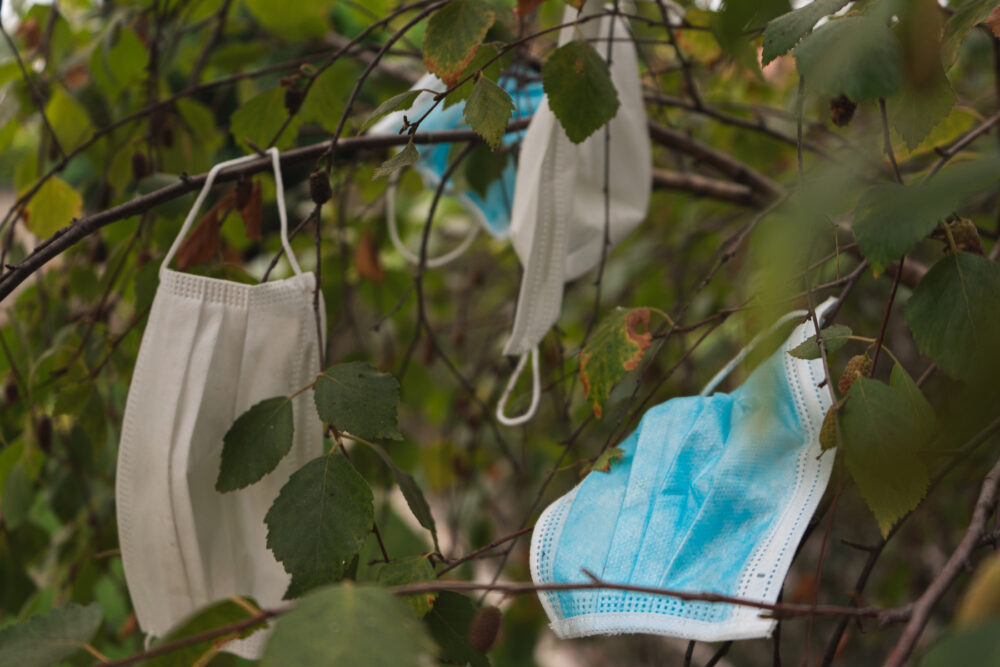
By Jessica Nguyen & Brian Pham
Masks are a common sight to see throughout the world due to the COVID-19 outbreak. Even with the encouragement to wear masks to protect ourselves, little has been said about how to dispose of them properly. Although masks are effective in decreasing the transmission of the virus, there have been unexpected downsides for the environment.
Since the start of the pandemic, over 200 billion disposable masks have produced and disposed of each month. Many of them can be seen littered on the streets, oceans and beaches. Earlier this year, for example, Hong Kong had lines of plastic masks lined up on their beaches.
Single-use masks are typically made with non-degradable materials, such as polypropylene, polyethylene, polycarbonate or polyester. Discarding plastic masks only contributes to our growing plastic waste problem.
These masks are especially starting to pose an issue for aquatic environments.
Wildlife can get tangled in the strings of the masks, causing them to choke. Marine animals can also mistakenly eat the masks for food as masks can collect algae, which can ultimately cause dietary issues for their stomachs and lead to death.
Animals consuming discarded masks can also be hazardous to people. Disposal masks are made up of polypropylene, plastic can break down into smaller particles, or microplastics, along with other toxic substances. Animals absorb these toxins, which make their way into food chains and human foods through the process of biomagnification.
Producing all these masks contributes to climate change as well. The heat involved in shaping the plastic releases fumes into the air and toxins into our soils and emits greenhouse gases.
Fortunately, there is still time to solve the problems caused by improperly throwing away masks, and it starts with you.
The best thing you can do is to simply buy a reusable mask. The University College London team discovered that machine washing reusable masks with no filters are the most sustainable option.
Reusable masks can also be reused for more than once and can easily be cleaned by washing. A quick throw into the laundry machine is sufficient in cleaning a mask. Make sure to remove any detachable parts before washing and use a detergent that contains disinfectant or bleach to kill germs. After washing your masks, put them in direct sunlight or the highest dryer setting to ensure that any remaining germs are killed.
Wearing reusable masks can also be fun because they are customizable and allow you to show off your personality while doing your part of preventing the spread of the coronavirus. Always make sure to have several masks on hand in case one gets damaged and you don’t have to use a disposable one.
However, dire situations may call for disposable masks. Try to hold onto your mask until you can properly dispose of it and make sure to cut off the strings before you throw it away to prevent animals from getting entangled in them. If you are unable to cut the straps, rip the mask in half. Throw your mask away in a closed trash can or a place where it is out of reach of animals. You can securely cover your trash so that animals cannot get into it and aren’t at risk of choking on masks.
Remember, Barons, you can stay safe and environmentally friendly at the same time!





